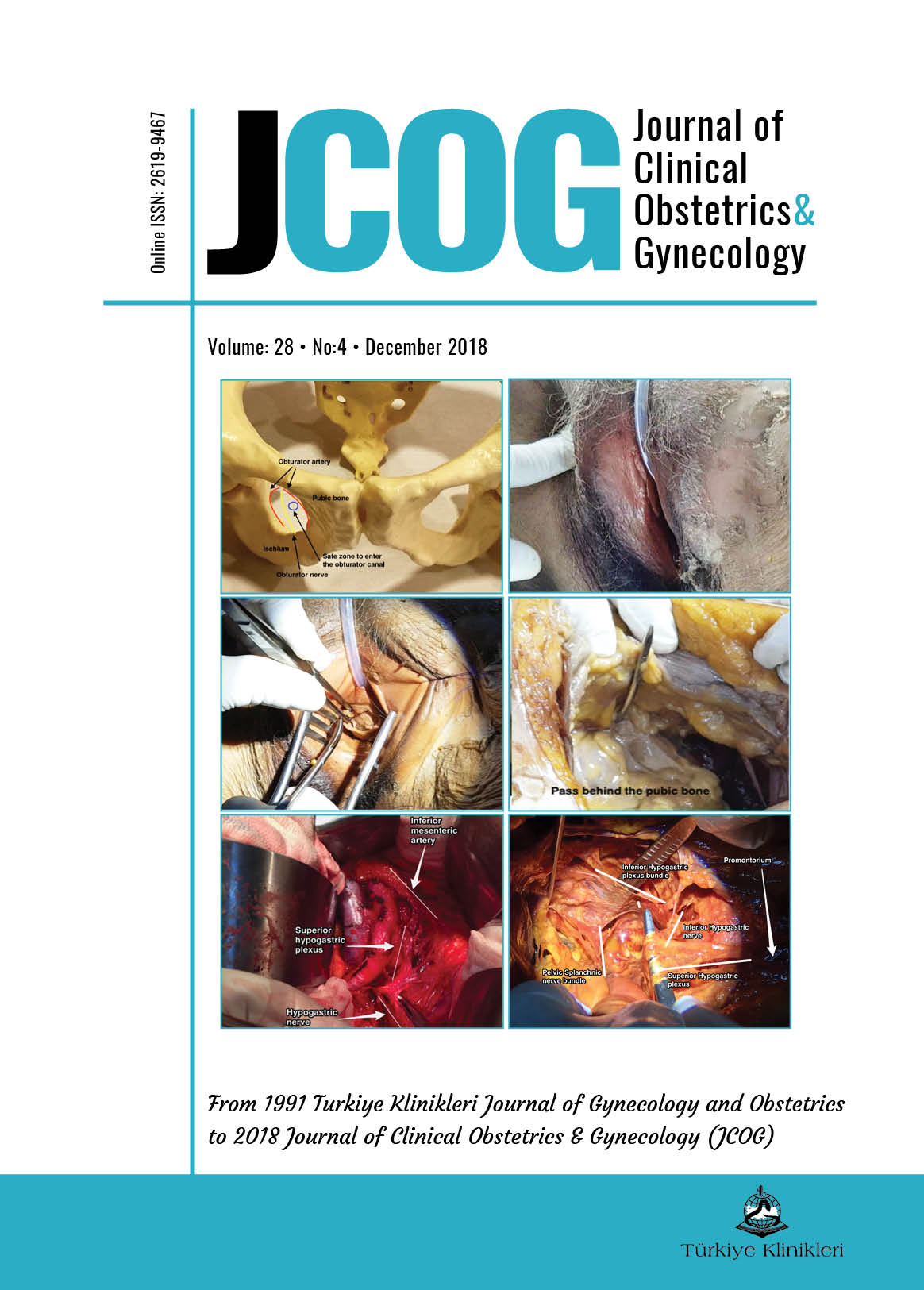Open Access
Peer Reviewed
ORIGINAL RESEARCH
2630 Viewed1440 Downloaded
Effect of HRT on Serum Lipid, Apolipoprotein AI, Apolipoprotein B, and Lipoprotein (a) in Postmenopausal Women: Added Benefits of Dietary and Exercise Improvement
J Clin Obstet Gynecol. 2018;28(4):146-56
DOI: 10.5336/jcog.2018-61286
Article Language: EN
Article Language: EN
Copyright Ⓒ 2025 by Türkiye Klinikleri. This is an open access article under the CC BY-NC-ND license (http://creativecommons.org/licenses/by-nc-nd/4.0/)
ABSTRACT
Objective: In this quasi-experimental study, we aimed to measure the effect of hormone replacement therapy (HRT) on serum lipid, apolipoprotein AI, apolipoprotein B, and lipoprotein (a). The study had three objectives: to replicate previous studies' findings on the effect of HRT on lipid and lipoprotein profiles; to integrate possible effects of dietary and exercise improvements (considered as independent predictors), covariates, and interaction variables; and to report effect sizes capable of estimating the impact of HRT on each outcome variable of the study. Material and Methods: The effect of HRT on serum lipid, apolipoprotein AI, apolipoprotein B, and lipoprotein (a) was determined in a case group of 86 postmenopausal women compared with that in a control group of 97 age-matched women who were not receiving HRT and who were not menopausal. Results: HRT had the expected salutary effect on all measured variables, except for apolipoprotein AI. The largest effect size was observed for high-density lipoprotein cholesterol, suggesting the need for replication and if necessary, further investigation of why HRT might be particularly beneficial for highdensity lipoprotein cholesterol levels of postmenopausal women. Conclusion: Finally, the study found neither an independent nor interactive effect of diet or exercise on the effect of HRT.
Objective: In this quasi-experimental study, we aimed to measure the effect of hormone replacement therapy (HRT) on serum lipid, apolipoprotein AI, apolipoprotein B, and lipoprotein (a). The study had three objectives: to replicate previous studies' findings on the effect of HRT on lipid and lipoprotein profiles; to integrate possible effects of dietary and exercise improvements (considered as independent predictors), covariates, and interaction variables; and to report effect sizes capable of estimating the impact of HRT on each outcome variable of the study. Material and Methods: The effect of HRT on serum lipid, apolipoprotein AI, apolipoprotein B, and lipoprotein (a) was determined in a case group of 86 postmenopausal women compared with that in a control group of 97 age-matched women who were not receiving HRT and who were not menopausal. Results: HRT had the expected salutary effect on all measured variables, except for apolipoprotein AI. The largest effect size was observed for high-density lipoprotein cholesterol, suggesting the need for replication and if necessary, further investigation of why HRT might be particularly beneficial for highdensity lipoprotein cholesterol levels of postmenopausal women. Conclusion: Finally, the study found neither an independent nor interactive effect of diet or exercise on the effect of HRT.
MENU
POPULAR ARTICLES
MOST DOWNLOADED ARTICLES





This journal is licensed under a Creative Commons Attribution-NonCommercial-NoDerivatives 4.0 International License.










